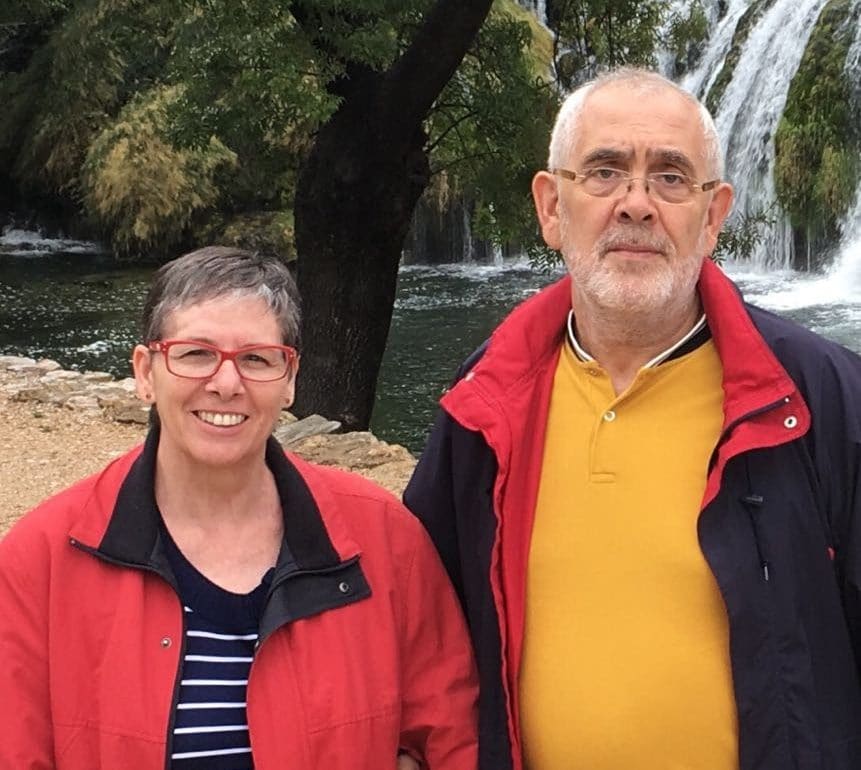Through volunteer work in Prison Ministry, “we help the inmates but they help us because it’s an activity of listening and accompaniment, which helps us to be more empathetic with suffering people and it’s also a work of mercy. ‘I was in prison and you came to visit me.’”
These were Salvador and Piedad’s words, a volunteer married couple in Prison Ministry in the Albocasser Prison Center, in Castellon, Spain, published in No. 3 of its Informative Bulletin, which in fact is called “You Came.”
As explained on the Website of the Prison Ministry of the diocese of Castellon, this activity constitutes “the Church’s evangelizing action addressed to people in prison or related to the prison world. It’s the presence of the Church, which assumes the preferential option for the poor, recognizing in the recipients of Prison Ministry the suffering Christ, who makes His own the suffering of these brothers.”
* * *
We are Salvador and Piedad, a volunteer married couple in Prison Ministry who reside in Benicarlo. We have two children <and> are retired, Salvador because of his age, and Piedad because of illness. Salvador was a professional car dealer and Piedad an official of the Administration of Justice. We always collaborated with different Associations, but not together as we are doing now, as Piedad has reduced mobility, we collaborate with the UNE-t program in Prison Ministry.
You have a wide experience as volunteers in the prison world. Can you summarize it?
For six years we have been collaborating together as volunteers with the UNE-t program of the Albocasser Prison Center. But before, Salvador went for many years to the Castellon Prison Center to accompany the inmates and Piedad, before she had the sickness she is now suffering, went, together with other volunteers, to the Albocasser Prison Center, collaborating with the Racó de la Pau program, which consisted in holding a meeting every two weeks with various inmates in the Center, beginning the meetings with a text of the Word and dedicating time to reflect on a part of the Gospel and on daily problems, listening to inmates’ opinions. For many years Piedad also took family members in her car every two weeks who had communication with an inmate and thus they were also able to vent their feelings about the situation they were living.
In the Prison Ministry, you are committed to the UNE-t program. Can you explain what it’s about?
The UNE-t program is about having a monthly communication through glass, of 45 minutes duration, with an inmate of the Center assigned to us by the Center’s Chaplain, Mn. Jordi Mas.
How are you helping to rebuild the life of the inmate assigned to you?
Until March of 2021 and since about four years ago, we accompanied an inmate who was released that month. In the beginning, he was very depressed, very unhappy about the harm he had caused his family and he couldn’t forgive himself. Little by little and talking with him, his attitude changed, he got in touch with his family and with the Chaplain’s help, he attended Mass, and with our conversations, his state of mind improved and he always said that it was thanks to the Word of Jesus Christ that he had changed and learned about the better way, and that he now lived in peace, with himself and with society.
Since then we haven’t gone to the Center as Salvador isn’t well; we hope that his ailment will soon improve.
What would you say to a person who is thinking about doing this volunteer work?
Not to hesitate. It’s volunteer work that helps the inmates, but they <also> help us because it’s an activity of listening and accompaniment, which helps us to be more empathetic with suffering people and it’s also a work of mercy: “I was in prison and you came to visit me.”
Translation by Virginia M. Forrester










